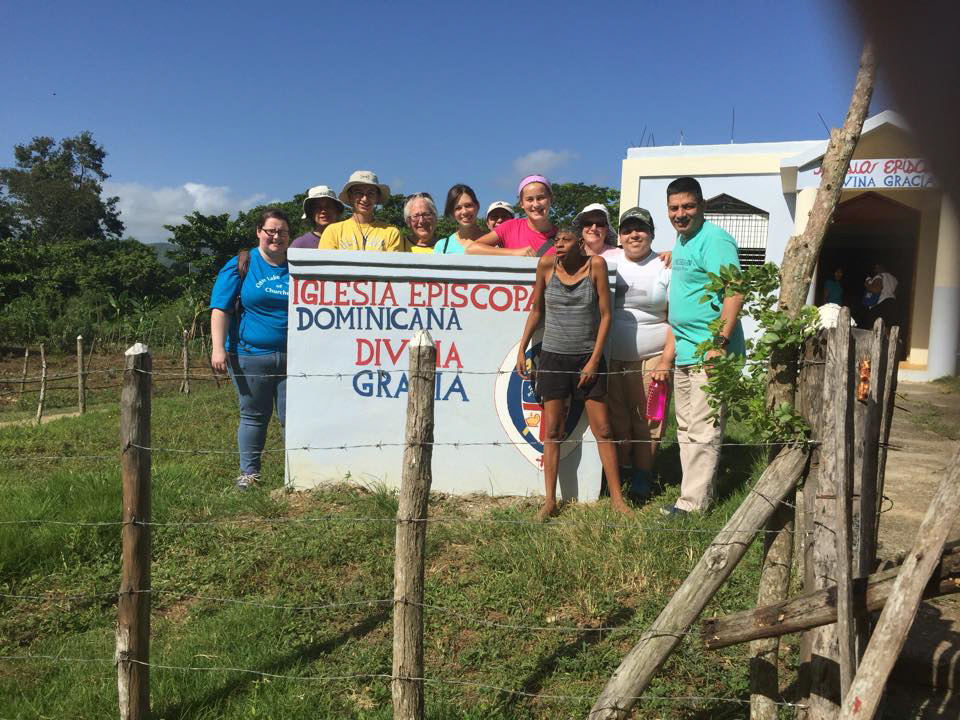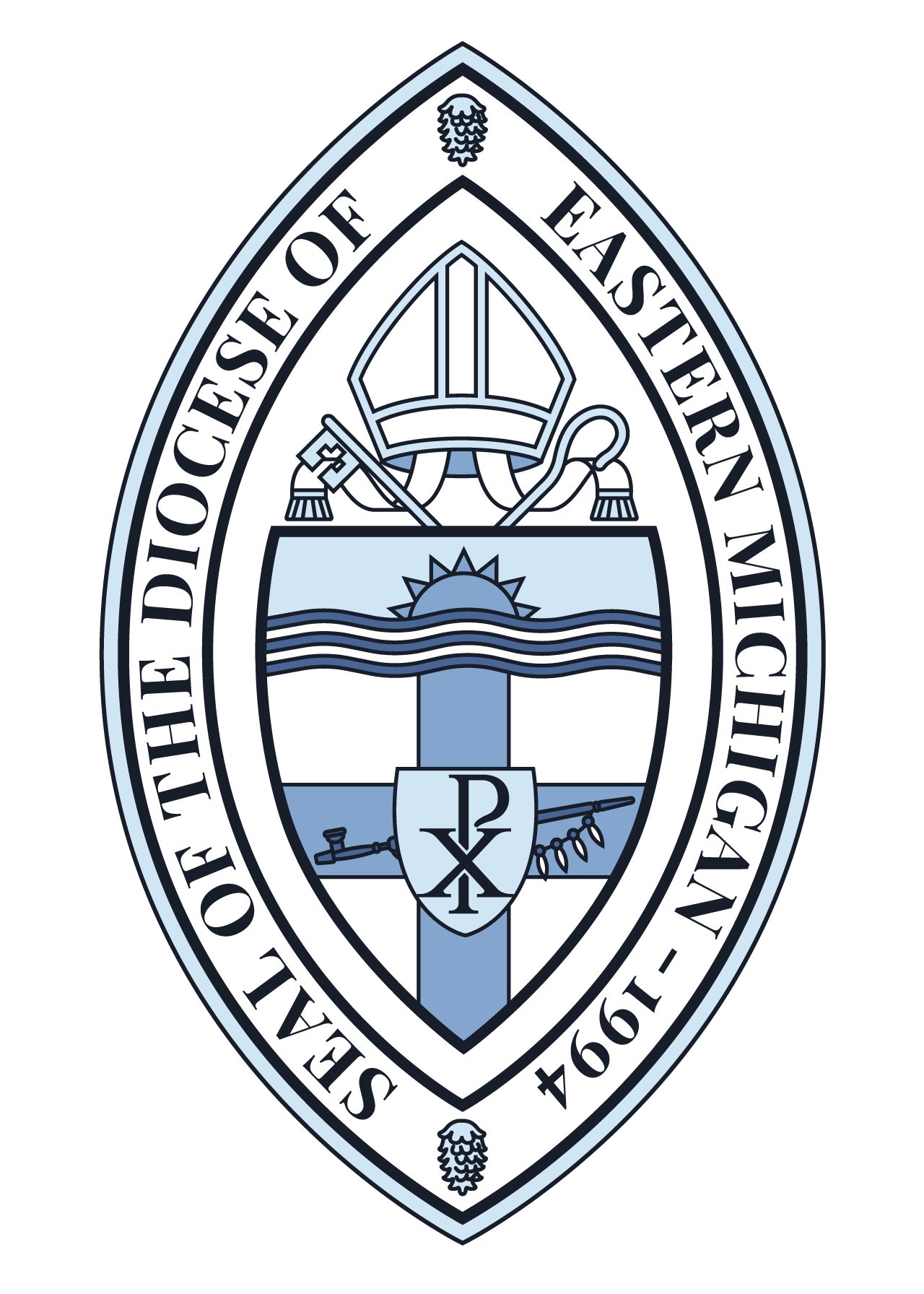The D.R.E.A.M. Project
The D.R.E.A.M Project is a collaboration between the three Episcopal Dioceses of the lower peninsula of Michigan working with the Dominican Development Group to do transformational ministry alongside the people of the Diocese of the Dominican Republic.
About the Project
Our three lower Michigan dioceses are combining ideas, talents, finances, and dreams. We are working together to support and minister alongside the people of the DR through a building project in Mosoví, bringing potable water to the church and wider community.
Our shared ministry began in the early 2000s. Since that time, our diocesan and congregational projects have included the building of new facilities and family homes as well as formation opportunities for children through Vacation Bible Schools and scholarships to attend Episcopal schools in the local diocese.

The Dominican Development Group (DDG), a non-profit organization within The Episcopal Church, coordinates the work of the Episcopal mission teams from the United States who work in the Dominican Republic each year and assists the Episcopal Diocese of the Dominican Republic in achieving financial self-sufficiency.
The DDG works closely with the Episcopal dioceses with companion relationships with the Episcopal Diocese of the Dominican Republic: Central Gulf Coast, Eastern Michigan, Georgia, Michigan, Nebraska, Northwest Texas, The Episcopal Church in South Carolina, Southeast Florida, Southwest Florida, Western Louisiana, and Western Michigan. The DDG also helps coordinate the work of other organizations that support mission teams and other projects in the Episcopal Diocese of the Dominican Republic.
2022 Mission Project
We are hopeful that we will be able to join our friends in the Dominican Republic once again in 2022. In addition to building relationships across the church, our long-term goal for this project is to bring potable water to the community of Mosoví through the local congregation.
Stay tuned for more details, including pricing and registration.
The approximate cost for each team member is $2,400-$2,500.
Here’s how this breaks down (All numbers approximate):
FLIGHT: $900-$1,000 with group rate discount
INSURANCE: $50
LODGING w/MEALS: $500
MATERIALS: $900
ON-SITE MEALS: $70
The Dioceses of Eastern and Western Michigan have a policy to assist missioners with the cost of their trip. The diocese commits to paying 1/3 of the total cost of the trip, with the understanding that the missioner will pay or raise 1/3 and their parish will pay or raise 1/3.
As a team member you are required to solicit funds for your trip. This is not easy for some, but remember, you are not asking for funds for yourself but for support of the DR project and relationship building.
We are in the DR to learn from a culture and a group of people. We are guests. We must put aside our need to have all the answers or to know what is best in any situation.
We are patient.
….with time: This is a culture where events do not take place on the clock. Things start when they start. We may spend a lot of time waiting. Building relationships and being with people are much more important than beginning something on time.
…with language: Spanish is spoken. Even if you know some Spanish, you will probably not always know what’s going on. It will be difficult to get your point across. This is an opportunity to learn ways other than speech to communicate!
We are vulnerable. Traveling in a different country where you aren’t familiar with the language, customs, food, and people, you have the opportunity to become vulnerable. This vulnerability is a gift because it is through being vulnerable that we must rely on each other, on our hosts, and on God. Please be aware of the dangers – both in safety and disease – and act accordingly.
Food and water: Be very careful of what you eat. We advise you not to eat from the vendors on the Malecon or on the beach. Do so at your own risk. Do not ingest water. Use bottles of water to drink and brush your teeth. Do not get ice in your soda except at the hotel – the ice at La Lomar is safe to consume. The food in the Dominican Republic is very good but may be more adventurous than you are used to. If you are a picky eater, please pack and bring snacks.
Plumbing: This country does not have a sophisticated plumbing system in many areas. In many cases, including your hotel room, there is a waste basket beside the toilets – these are for the toilet paper instead of flushing. Much of the plumbing ends up in ravines so try to the best of your ability to accommodate this.
Military Check-Points: You may see military check-points where we drive and there may be security guards carrying machine guns. Our building site is in a tourist area so it is unlikely we will see this. It is more common near the Haitian border.
We are modest.
To respect the culture and to convey our best representation of the church it is important to be modest. Please dress modestly, refrain from swearing or crude language, and be conscious of how you relate with others, especially with people of the opposite sex.
What will I be doing?
As a team member, you will work alongside your fellow missioners and the Dominican community on projects that can range from construction to formation programs for kids.
You will also form truly transformational relationships with the people you will meet and work with, sharing life and spirituality through time in worship, fellowship, and shared purpose.
Will there be any required pre-trip meetings?
Yes, you will receive more information about scheduling after you apply. These may take place online via Zoom.
What should I bring with me?
Great question! Click this link to check out our recommended packing list.
Do I need to speak Spanish?
Nope! While it certainly helps, you do not need to speak Spanish to participate on a mission trip. We’ll have people who can translate along with us and you are sure to pick some up along the way and to learn other ways of communicating!
Am I too young to go?
Missioners need to be at least 15 years of age unless accompanied by a parent or guardian.
In addition, Minor to Travel forms must be signed and notarized.
Am I too old to go?
Nope! There’s something to do for every age.
Where will we stay?
It depends on the project. Sometimes we stay in dorm-like accommodations and sometimes we’re in a traditional hotel. It can vary.
Do I need a passport?
Yes. If you don’t already have one, click here for information about applying. The application process usually takes about six weeks.
Do I need a travel visa?
No! This is now included in the price of your airline ticket.
What is the climate like?
The DR is a tropical country in the caribbean. Because elevations vary widely, you may see varied climates over quite short distances. During our summer mission projects, it is usually warm and humid.
Can I bring gifts?
Any gifts or items to be left in the DR must go through the priest – this is an absolute, no exceptions. We are there as guests to form relationships.
Contact Person
The Ven. Beth Drew, Project Coordinator, bethdrew7@gmail.com

